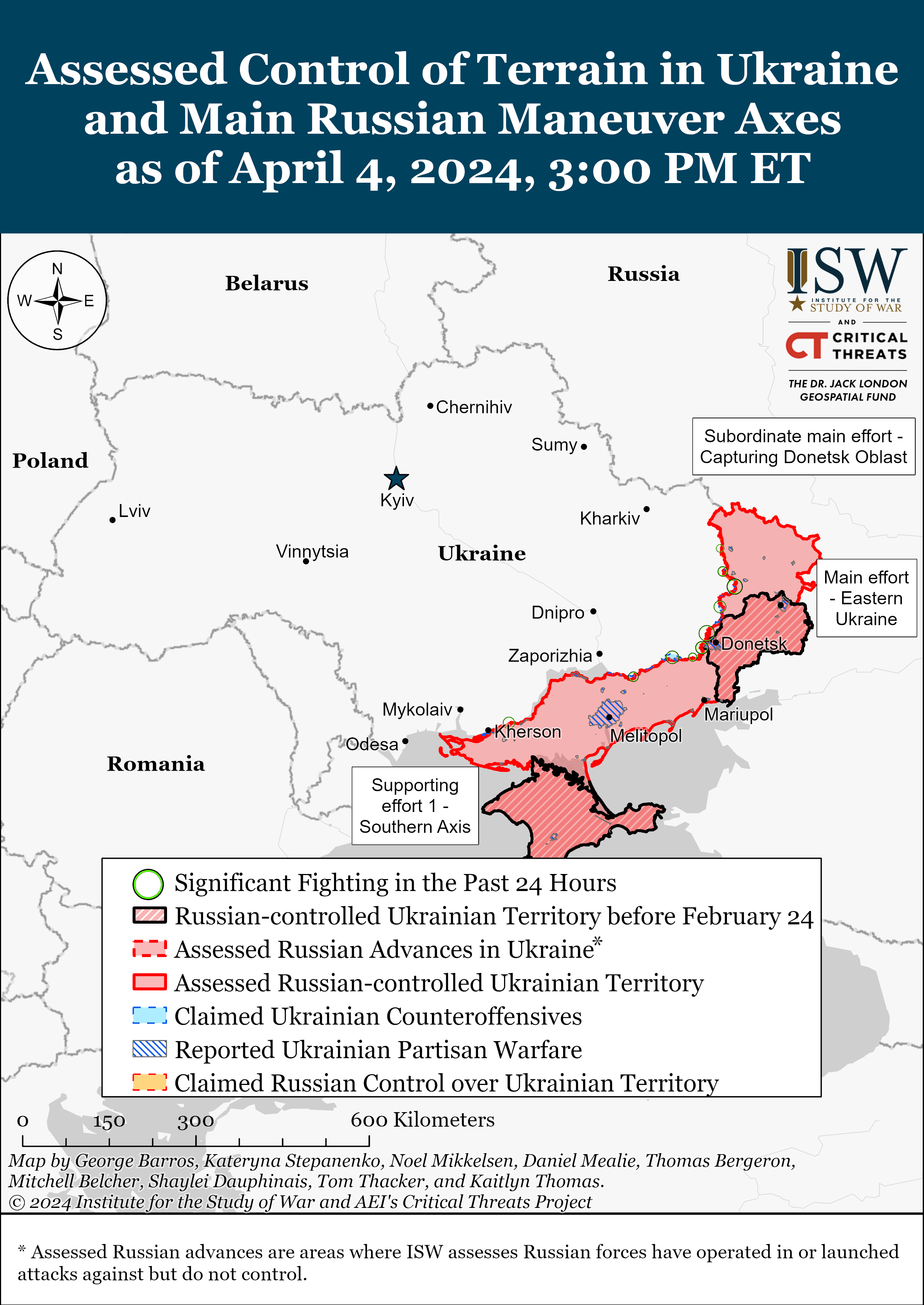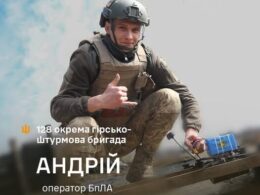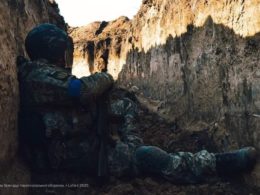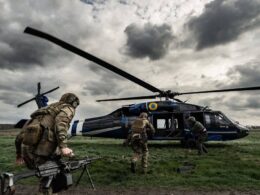Other key takeaways from the report:
- Russian Defense Minister Shoigu threatened France in response to Macron's statement about potentially deploying French troops to Ukraine, attempting to deter future Western military aid.
- Lavrov criticized Ukraine's "peace formula," claimed Russia's readiness to negotiate on favorable terms, and blamed the West for the lack of peace negotiations during a meeting with foreign ambassadors. Despite Russian officials' statements, ISW assesses that any Russia's suggestions of interest in negotiations are likely efforts to force Western concessions on Ukrainian sovereignty.
- Putin stated that Russia will face labor shortages and needs to increase productivity, modernize economic sectors, and continue relying on migration, signaling to Russian ultranationalists to stop their anti-migrant calls after the Crocus City Hall attack.
- Putin claimed that Russia's economy is not on a wartime footing but is allocating resources to develop its defense industry. Russia has been gradually mobilizing its defense industry to support the invasion of Ukraine, with roughly a third of its annual federal budget allocated to defense spending. However, the Kremlin likely cannot rapidly transition to total economic mobilization as the Soviet Union did during World War II.
- An unspecified senior NATO official told Russian opposition news outlet Vazhnye Istorii that NATO intelligence agencies have not observed indications of Russia preparing for a large-scale partial mobilization wave. The official stated that Putin wants to postpone mobilization to demonstrate strength after the March 2024 Russian presidential election and assessed that Russia lacks the resources needed for a major offensive. ISW claims Russian authorities would likely intensify crypto-mobilization efforts before conducting another unpopular mobilization wave.





